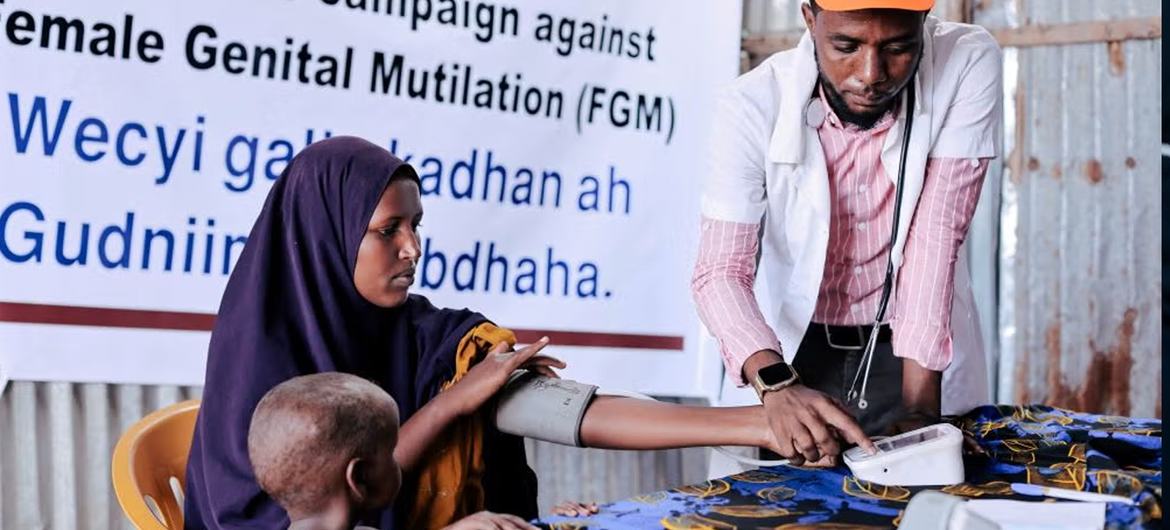Zeinaba Mahr Aouad, a 24-year-old woman from Djibouti, remembers the day a ten-year-old an unexpected visitor came to her house: “She had a syringe, a razor blade and bandages.”
The woman was there to perform a brutal, unnecessary and – since 1995 in the Horn of Africa Country – illegal operation known as female genitalia, involving sewing a girl’s vagina and cutting her clit.
Even as Zeinaba’s traumatic experience has flooded her memories of that day, she still remembers the feeling of intense pain when the effects of the anesthetic were worn off.
Difficult to go
“I had trouble walking, and when I urined, it burned,” she said.
Her mother told her it was nothing to worry about and talked about the degrading procedure in terms of tradition.
Like many victims of FGM, Zeinaba came from a vulnerable and bad background who lived in a single room with his mother and two sisters in a flooded neighborhood in Djibouti City.
“There was just a TV, suitcases where we stored our clothes and mattresses that we slept on,” she remembered.
Her mother sold flatbread to passers -by while Zeinaba played with a jumping rope with friends. “We also played right in dirt.”
230 million mutilations
Zeinaba Mahr Aouad, 24, resident of Djibouti, survived female genitalia when she was 10 years old. Now a volunteer for the “Elle & Elles” network with the support of UNFPA, she can -canced her neighborhood and others to convince residents to end that practice.
About 230 million women and girls around the world have undergone mutilations according to data released by the UN’s sexual and reproductive health agency, UNFPA, and it is increasing as still younger children, sometimes under five years old, go under the knife.
“A baby is not talking,” explained Dr. Wisal Ahmed, an FGM specialist at UNFPA.
It is often considered a disposable procedure, but in reality it involves a lifetime of painful procedures that continue into adult age.
“The woman is cut again to have sex, then sewed together again, reopened for birth and closed again to narrow the opening one more time,” said Dr. Ahmed.
To tackle harmful traditions
UNFPA and its international partners have worked to put a final end to FGM, and although these efforts have contributed to a constant decrease in the rates on which the procedure is performed over the past 30 years, the global increase in population means the number of affected Women are actually growing.
UNFPA continues to work with communities that still participate in practice about the short and long -term effects.
The agency’s work has been supported worldwide through a number of years by the US government that has recognized FGM as a violation of human rights.
It is not a problem that only affects developing countries. According to the US Department of State Department, about 513,000 women and girls in the United States have through 513,000 women and girls reviewed or are in danger of FGM.
Support from men
In Djibouti, by 2023, the United States delivered about $ 44 million in foreign aid.
UNFPA confirmed that FGM programs supported by the United States have not yet been affected by the current stop work orders, adding that “US support for UNFPA in the last four years resulted in an estimated 80,000 girls being estimated, that avoided female genitalia mutilation. ”

UNFPA supports awareness of raising FGM campaigns in Africa, including in Somalia (in the picture).
Local networks
Zeinaba Mahr Aouad is now working as a volunteer for a local network launched by UNFPA in 2021, which makes up over 60 women and provides support for local women’s health and rights activists.
She also visits underprivileged areas in Djibouti to raise awareness among young people and future parents, both women and men, of the harmful effects of FGM.
“Because it’s not just the woman who participates in this practice: without the deal from the man by her side it could not be done,” she said.



